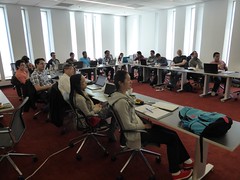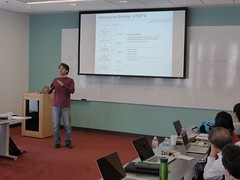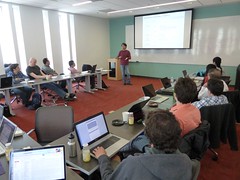$1.7 million for the group of Volker Dötsch/ research on pharmaceutically relevant membrane protein structures and dynamics
FRANKFURT. The research group of Prof. Volker Dötsch at the Institute for Biophysical Chemistry at Goethe University is involved in two international research grants funded by the National Institutes of Health (NIH). These interdisciplinary teams of scientists will use state-of-the-art biophysical and computational methods to understand how the structure and dynamics of membrane proteins determine their functions. Over the next 5 years the group will receive $ 344,000 per year for the two consortia („Membrane Protein Structures by Solution NMR” and “The Center for Membrane Protein Structure and Dynamics”).
Although more than 50% of all pharmaceutical drugs function via membrane proteins, to date very little is known about the structures and processes involving membrane proteins. Therefore the NIH granted the „Membrane Protein Structural Dynamics Consortium“ coordinated by the University of Chicago. Scientists from 14 institutes of four different countries are involved. Included in this international team is the research group of Volker Dötsch at the Institute of Biophysical Chemistry. Over the last couple of years researchers in his group led by Frank Bernhard have developed a cell-free protein expression system that enables researchers to express roughly 80% of all membrane proteins – both prokaryotic and eukaryotic ones. Since membrane proteins are notoriously difficult to express in cellular systems, the cell-free expression system provides a very interesting alternative approach to obtain the large quantities of material required for detailed biochemical and biophysical investigations.
The group developed a new method for labeling membrane proteins with selectively labeled amino acids which allows them to determine the structure of membrane proteins via NMR spectroscopy, which is very difficult with conventional approaches. With this expertise they play a part in the second NIH funded project: „Membrane Protein Structures by Solution NMR“. One recent success of the Dötsch group is the determination of the C-terminal part of Presenilin 1. Presenilin is involved in the formation of precursors of plaques, which are a hallmark of the Alzheimers disease. The further development of these techniques is one aim of the this research consortium, coordinated by the Harvard Medical School. In addition to the Frankfurt group, two research groups of the Vanderbilt University and one at the Los Alamos National Laboratory, US, are involved.







